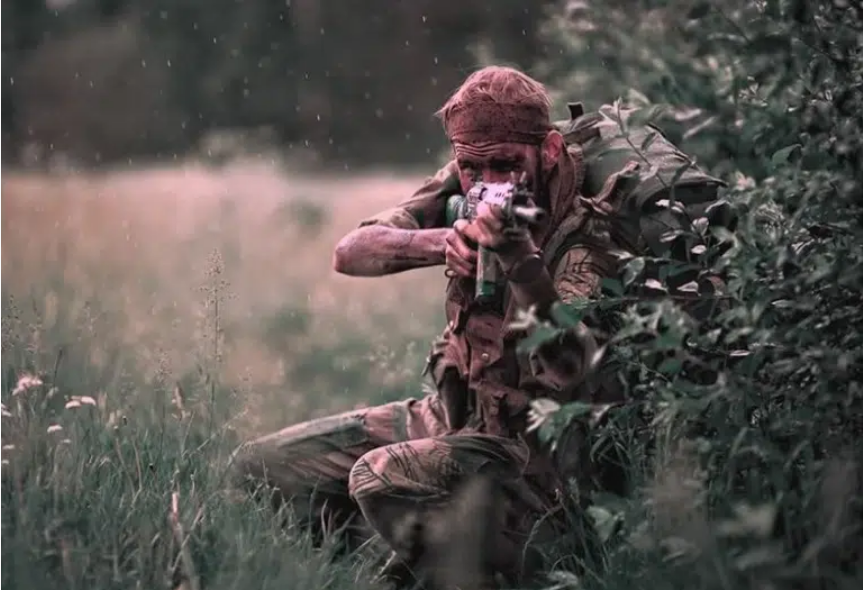Introduction to Selous Scouts
The Selous Scouts are a unique chapter in military history. Established during the turbulent times of the Rhodesian Bush War, this unit was known for its unconventional warfare tactics and elite operations. But who exactly were these warriors? Their story is as complex as it is fascinating, woven with threads of bravery, strategy, and controversy. In this blog post, we’ll delve into the rich history of the Selous Scouts, explore their training methods and operational strategies, and discuss their lasting legacy. Whether you’re a history buff or simply curious about military units that shaped modern conflicts, there’s much to discover about the enigmatic Selous Scouts. Let’s embark on this journey together!
History of the Selous Scouts
The Selous Scouts were formed in 1973 during a tumultuous period in Rhodesia’s history. This elite unit emerged as part of the government’s counterinsurgency efforts against guerilla fighters during the Zimbabwean liberation struggle.
Initially, they operated under unconventional warfare tactics, blending into local communities and using deception to gather intelligence. Their unique approach combined traditional military training with guerrilla-style operations.
As time progressed, the Scouts became infamous for their effectiveness and ruthlessness. They engaged in reconnaissance missions deep behind enemy lines and conducted daring ambushes that showcased their skills.
Their legacy is intertwined with controversial strategies, including psychological warfare aimed at undermining insurgent morale. Such methods have sparked debates about ethics in wartime conduct.
Despite being disbanded after Rhodesia transitioned to majority rule, their impact on military strategy remains notable within both historical and contemporary discussions on special forces operations.
Training and Operations of the Selous Scouts
The Selous Scouts were renowned for their rigorous training programs. Recruits underwent physical conditioning and specialized instruction in guerrilla warfare tactics. This unique approach equipped them to operate effectively in diverse terrains.
Their operations commonly focused on reconnaissance, ambush strategies, and counterinsurgency missions. The Scouts often worked behind enemy lines, gathering intelligence crucial for planning military actions.
Each member was trained to adapt quickly to rapidly changing scenarios. They utilized advanced survival skills, making them formidable opponents in the field.
A significant aspect of their training included understanding local cultures and languages. This knowledge allowed them to navigate complex social landscapes during missions.
Furthermore, psychological resilience played a vital role in their effectiveness. Members learned how to maintain composure under pressure while executing high-stakes tasks with precision.
Controversies Surrounding the Selous Scouts
The Selous Scouts, once celebrated for their skills, have long been mired in controversy. Their methods of operation often raised ethical questions. Critics argue that they engaged in brutal tactics during the Zimbabwean Bush War.
Allegations of human rights abuses abound. Reports suggest that the scouts employed torture and extrajudicial killings against supposed insurgents. These actions sparked outrage both domestically and internationally.
Furthermore, their role in counter-insurgency operations was contentious. Some view them as heroes fighting for a cause, while others see them as mercenaries with dubious morals. This duality complicates their legacy.
Documentaries and books continue to explore these dark chapters of history. Many people remain divided over whether to honor or condemn the Selous Scouts’ actions during a turbulent time in Southern Africa’s past. The shadows of their controversial strategies linger on today, provoking ongoing debate among historians and military experts alike.
Where are the Selous Scouts Now?
The Selous Scouts, once a formidable force in Rhodesia, have since disbanded. Their legacy continues to echo through various military and security circles.
Many former members transitioned into private security roles. Some found opportunities in law enforcement or government services across different nations.
Others chose more peaceful paths, sharing their experiences through writing or public speaking engagements. The stories of their intense training and operations captivate audiences interested in military history.
Certain ex-Selous Scouts also participate in veteran organizations that aim to support their fellow soldiers. They connect with others who understand the challenges faced during conflicts.
While the original unit no longer exists, its influence remains palpable within current military tactics and counterinsurgency strategies employed today.
Legacy of the Selous Scouts
The legacy of the Selous Scouts is complex and multifaceted. They are often remembered for their unconventional warfare tactics during the Rhodesian Bush War, which showcased a unique blend of guerrilla strategies and counterinsurgency operations.
Their ability to operate seamlessly within enemy territories set a precedent in military training programs worldwide. Many modern special forces have drawn inspiration from their methods, adapting them to contemporary conflicts.
However, this legacy is not without shadows. The controversial actions taken by the Scouts, including alleged human rights violations, complicate how they are viewed today.
In Zimbabwe and beyond, discussions around their impact continue to provoke strong opinions. Some see them as heroic figures while others view them as symbols of oppression in a tumultuous period of history.
As time moves on, understanding their contributions—and missteps—remains essential for grasping both military evolution and regional dynamics.
Conclusion
The Selous Scouts remain a captivating subject of discussion and analysis. Their unique history intertwines with the broader narrative of military operations in Southern Africa. Trained for unconventional warfare, their methods were both innovative and controversial.
Today, the legacy of the Selous Scouts lives on through various accounts, documentaries, and discussions within military circles. They are often studied for their tactics and operational strategies that continue to influence modern guerrilla warfare.
As we explore where they can be found today—through archival materials or veteran gatherings—the fascination with this unit persists. The Selous Scouts have left an indelible mark on military history, shaping perceptions about counterinsurgency tactics and ethical considerations in combat.
Their story is complex yet compelling, encapsulating bravery alongside moral dilemmas faced during turbulent times in Southern Africa’s past. As we reflect on their impact, it is clear that understanding the Selous Scouts provides valuable insights into not just military strategy but also human resilience amidst conflict.



